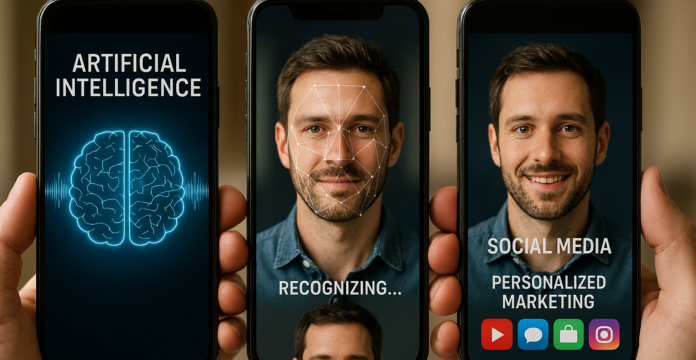Spooky AI – privacy concerns and algorithms that go ‘bump in the night’ is a joint seminar between the BUGGED and SYNTHETICA projects in which we take privacy discussions beyond the creepy to engage in issues causing stress, anxiety and hyper vigilance in everyday technological experience.

Organisers: BUGGED and SYNTHETICA
Place: TF4103 Technobothnia (just next to VME Interaction Design Environment), University of Vaasa, Puuvillakuja 3, Vaasa
Zoom: https://uwasa.zoom.us/j/66218457383?pwd=DfiM9KJhI2ehI6StoOHp1V6YkEcd75.1
Password: 232438
Time: 14:00-16:30
14:00-14:10 Opening words
14:10-14:50 Keynote – “Super-Augmentation: Exploring the Intersections of AI, Hyper-Personalised Data, and Society”, Associate Professor of Communication Toija Cinque, Critical Digital Infrastructures and Interfaces (CDII) Research Group, Deakin University, Melbourne, Australia
14:50-15:05 Coffee
15:05-15:40 Short talks from the BUGGED and SYNTHETICA teams
- Hanna-Kaisa Alanen: The Gaze that Never Sleeps: The Ghostly Presence of Modern Surveillance
- Tanja Sihvonen & Nuppu Pelevina: Potentially Lethal?
- Rebekah Rousi: The Beast in the Systems – Hypervigilence in Privacy Experience through Expectancy Violations Theory
- Ville Vakkuri: Your body knows – embodied experience of surveillance
15:40-16:10 Experiential mirrors – empathy mirror exercise on privacy experience
16:10-16:20 Whole group reflections
16:20-16:30 Busting the ghosts – which proton-zapper next?
********
KEYNOTE TITLE: “Super-Augmentation: Exploring the Intersections of AI, Hyper-Personalised Data, and Society”
Synopsys
From a Western perspective, the historical evolution of Large Language Models (LLMs) like ChatGPT and image generators such as DALL·E, Midjourney and OpenAI’s soon-to-be released Sora unfolds along a continuum of thinking that oscillates between hype and scandal. In rapid time ChatGPT- 4, released by OpenAI, became available in approximately 188 countries, following its initial launch in November 2022. Meanwhile, Microsoft’s Copilot, launched in November 2023, is accessible in the U.S., North and South America, the U.K and throughout Asia including South-East Asian regions. Google’s Bard, introduced in May 2023, has reached over 180 countries and territories. The updated ChatGPT-4o and emerging LLMs represent a significant advancement in the field of Artificial Intelligence (AI), harnessing the power of massive datasets to offer insights and advice across a broad spectrum of subjects. Built on the foundation of copious amounts of text, much of which is sourced from the internet, these models possess the remarkable ability to engage in human-like conversations on a vast array of topics. Their capacity to process, synthesise, and generate language-based responses has made them invaluable tools (or soon will) in both educational and professional contexts. However, it is important to approach their outputs with a critical eye. This work speculates on what this might mean for users at the individual level of everyday interactions with connected screen devices for the data collected and curated by and for us by ‘agents’ capable of more complex ‘reasoning’ than current personal apps like Siri or Alexa. By drawing on key infrastructures, users engage with big and small data in hitherto unprecedented detail. Data interpellates us. Yet data is obscure and enigmatic.




